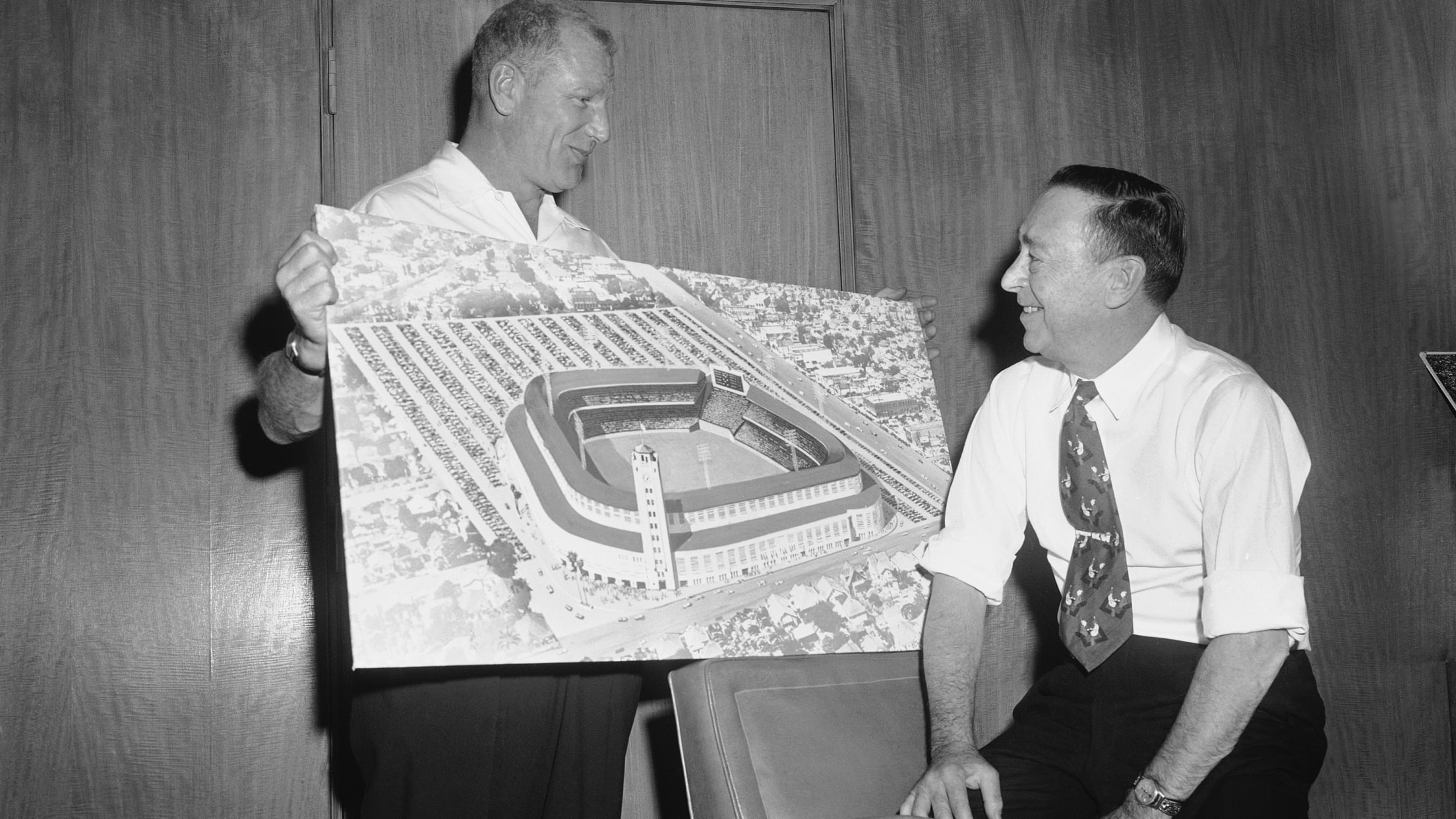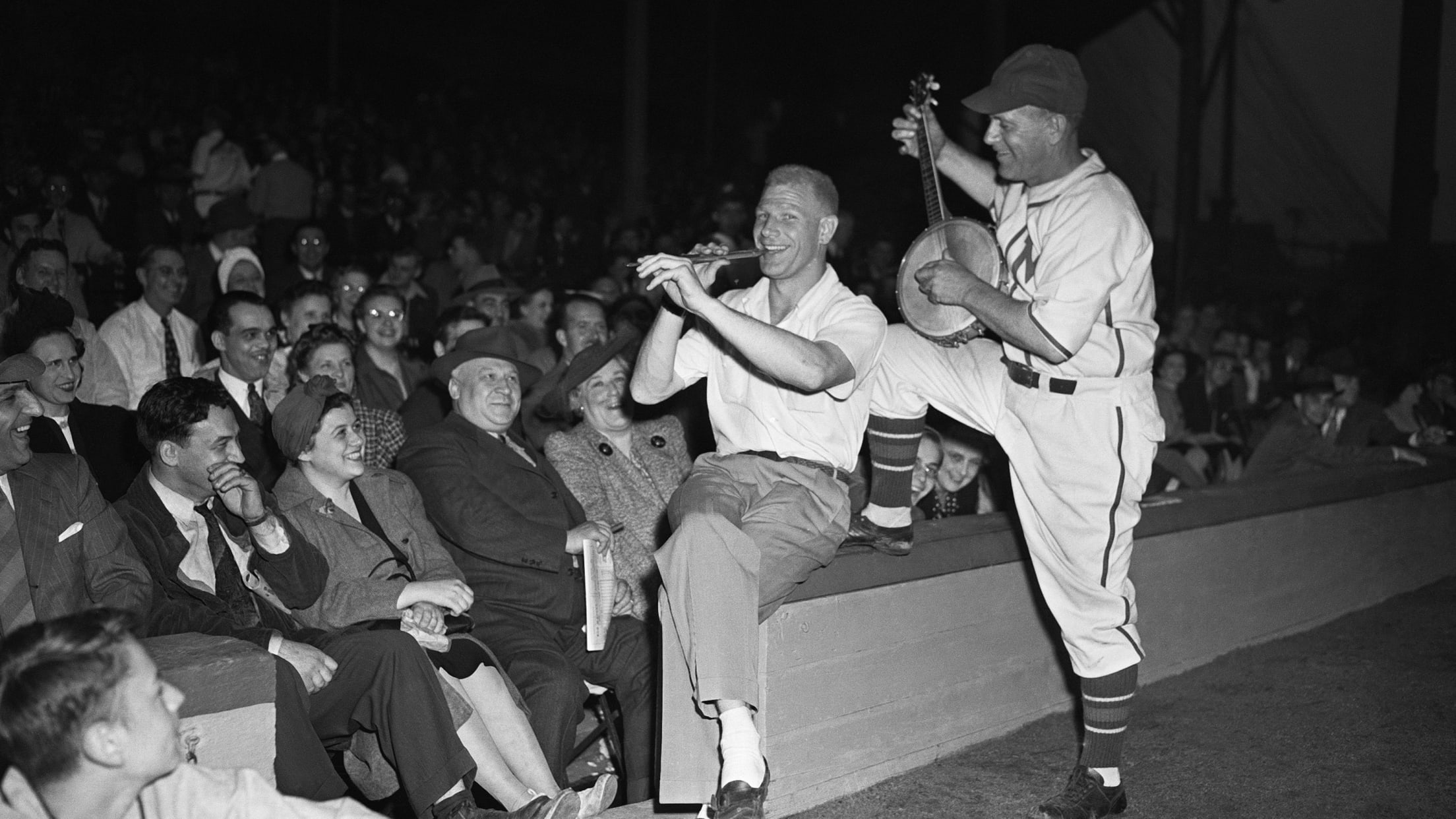Jeff Samardzija has some interesting ideas on ballpark fences ... and it may have been tried before

Poll most pitchers on how far away they'd like the outfield fences and they'd probably say, "Farther back." After all, you can't hit a home run over a fence that's 800 feet away.
Jeff Samardzija on moving the fences in: ¡°I like weird ballparks ... I think the should change it back and forth during the season. Move the fences in, move them out ... it¡¯s not going to tear up the field worse than Jason Aldean playing some terrible concert.¡±
— Grant Brisbee (@GrantBrisbee) February 9, 2019
But the right-hander with the flowing mane of hair isn't the first to think of this. That belongs to baseball genius and/or certifiable quack (depending on your point of view) Bill Veeck. Veeck was behind many of baseball's most insane promotions, from letting fans dictate the managerial moves to Disco Demolition night.
One of his most daring ideas took a few tries to get off the ground. First, as the owner of the Brewers, Veeck introduced a portable outfield fence that he moved in for Milwaukee's hitters and out for the opposition -- though it was soon done away with by Commissioner Kenesaw Mountain Landis. (There is some debate about whether this ever happened or even could have happened at Milwaukee's Borchert Field.)

But Veeck wouldn't be deterred. After becoming owner of the Indians in 1946, he grew tired of how big Cleveland's Municipal Stadium played, so he brought in a chicken wire fence to shorten the outfield. Depending on the team he was playing, he would move the fence in or out -- and because he knew the Commissioner would be upset, he had to use a little subterfuge.
As he wrote in "Veeck as in Wreck," the Indians made it appear that the fence was permanent, with sleeves placed over the wire fence and fence poles inserted into the ground. However, they also had "five or six sets of sleeves, nicely spaced so that we could move the fence in or out as much as 15 feet." They then would move the fence "stealthily, in the dark of night," to avoid the ire of the Commissioner.
So, when teams like the Yankees "came in with all those big strong healthy boys of theirs, the fence would be moved back just as far as it would go. When our little friends from St. Louis paid us a visit, we would move the left-field fence in as far as we could and keep the right-field fence as deep as we could."
Cleveland Municipal Stadium, 4/26/47 - Bill Veeck is not crazy about the deep dimensions of his Indians ballpark, so not only did he put in a temporary fence to shorten it, he moves them back or forth game-by-game depending on opponent. Soon after the maneuver was outlawed by AL pic.twitter.com/Synnx8kJxU
— Old-Time Baseball Photos (@OTBaseballPhoto) January 12, 2018
While Veeck thought he was helping the team, perhaps he wasn't. The Indians went 80-74 that year, but while they played .545 baseball on the road, they finished a game under .500 at home. Whoops.
Of course, as ingenious as this plan was, the Commissioner eventually caught on and the plan was outlawed. But with a lot of new rules being discussed right now, who knows, maybe the movable fence could make a comeback?



